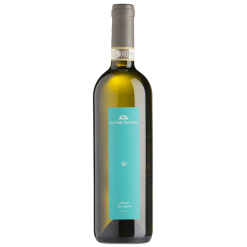Pecorino
Pecorino is a white grape variety native to Italy, primarily grown in the regions of Abruzzo, Marche, and Umbria. Though it has ancient origins, it was almost forgotten for a time until a resurgence in the 1990s, thanks to the efforts of local producers who saw its potential for creating high-quality wines. Pecorino wines are typically fresh, vibrant, and aromatic, with the grape known for its ability to produce wines with a unique balance of fruit and acidity. The name “Pecorino” is thought to be derived from the Latin “pecus,” meaning sheep, referring to the grape’s traditional association with sheep farming regions where the wines were once made to pair with the local sheep’s milk cheese.
Pecorino is a relatively hardy grape, thriving in the hilly, well-drained soils of central Italy. It is known for its resilience to temperature extremes, as it is well-suited to the cool nights and warm days of the region. However, Pecorino is a late-ripening variety, which can pose a challenge in cooler years, as it may struggle to reach full ripeness before the end of the growing season. In terms of organoleptic characteristics, Pecorino wines are marked by their bright acidity, floral aromas, and flavors of green apple, citrus, and white peach. These wines also often have a subtle minerality, lending them an elegant and refreshing profile. Pecorino’s fresh, clean taste and moderate alcohol make it a fantastic pairing with seafood, light pasta dishes, and fresh cheeses. Its versatility and balance have made it a favorite among those seeking crisp, food-friendly white wines.

